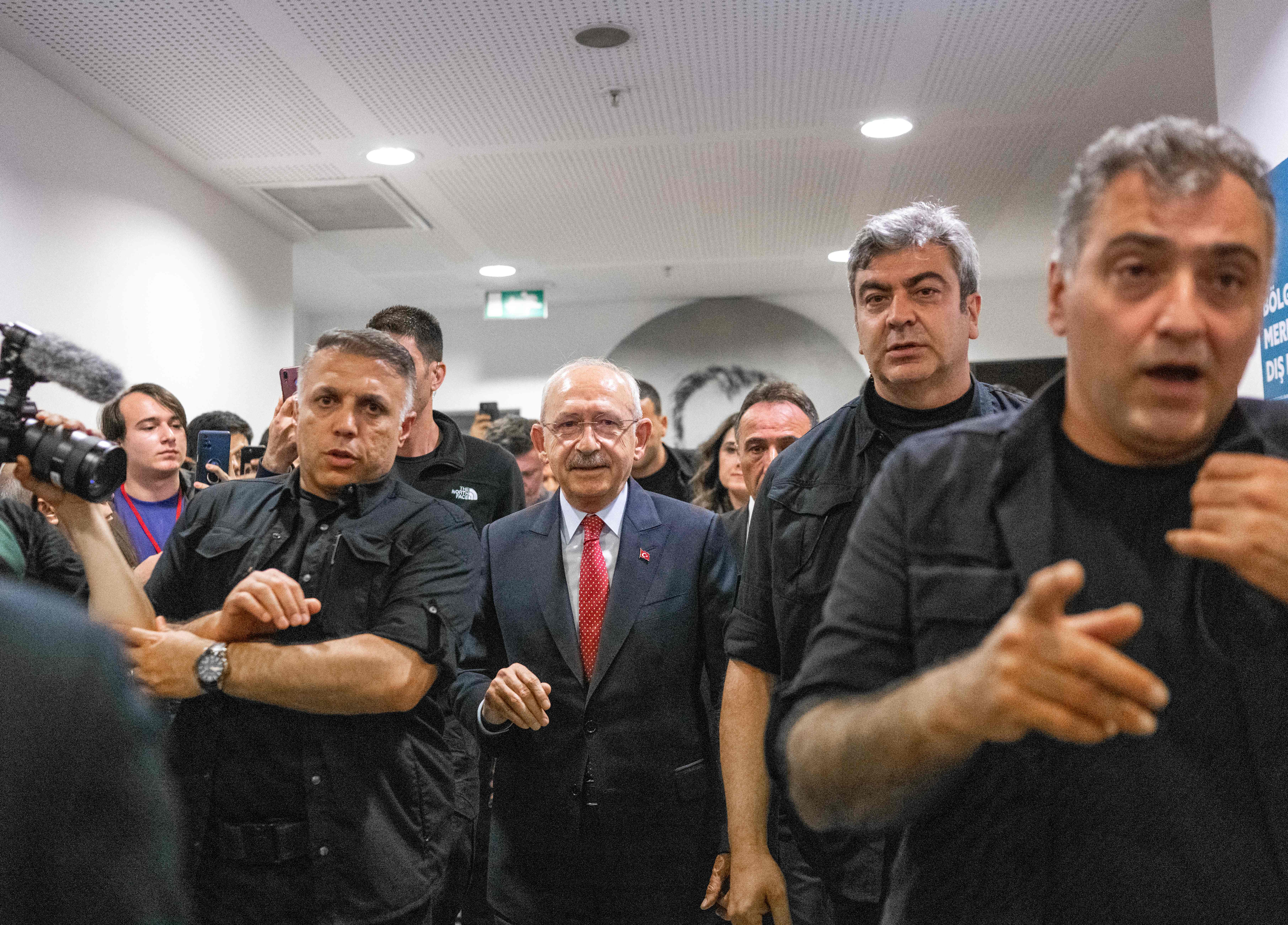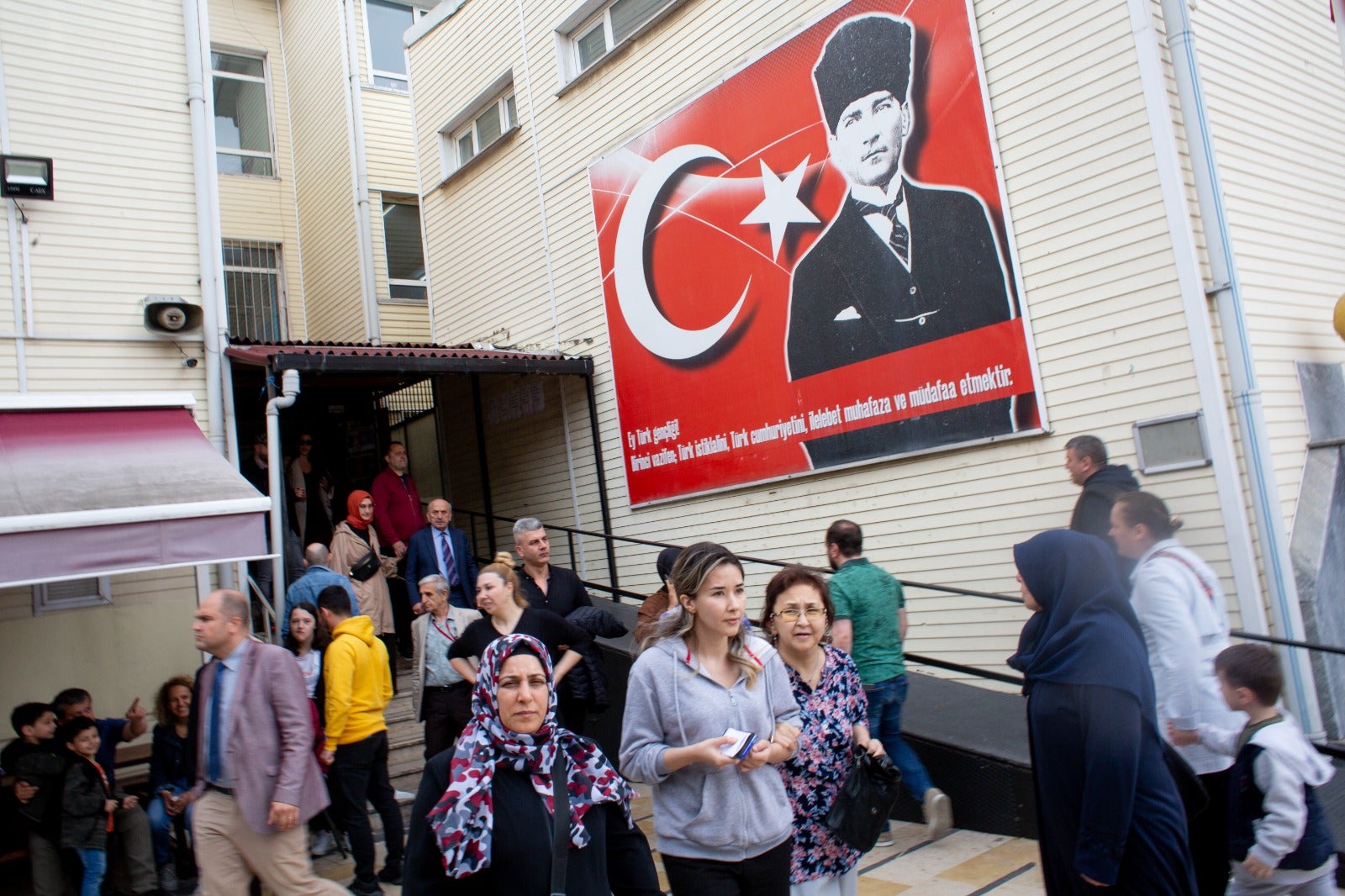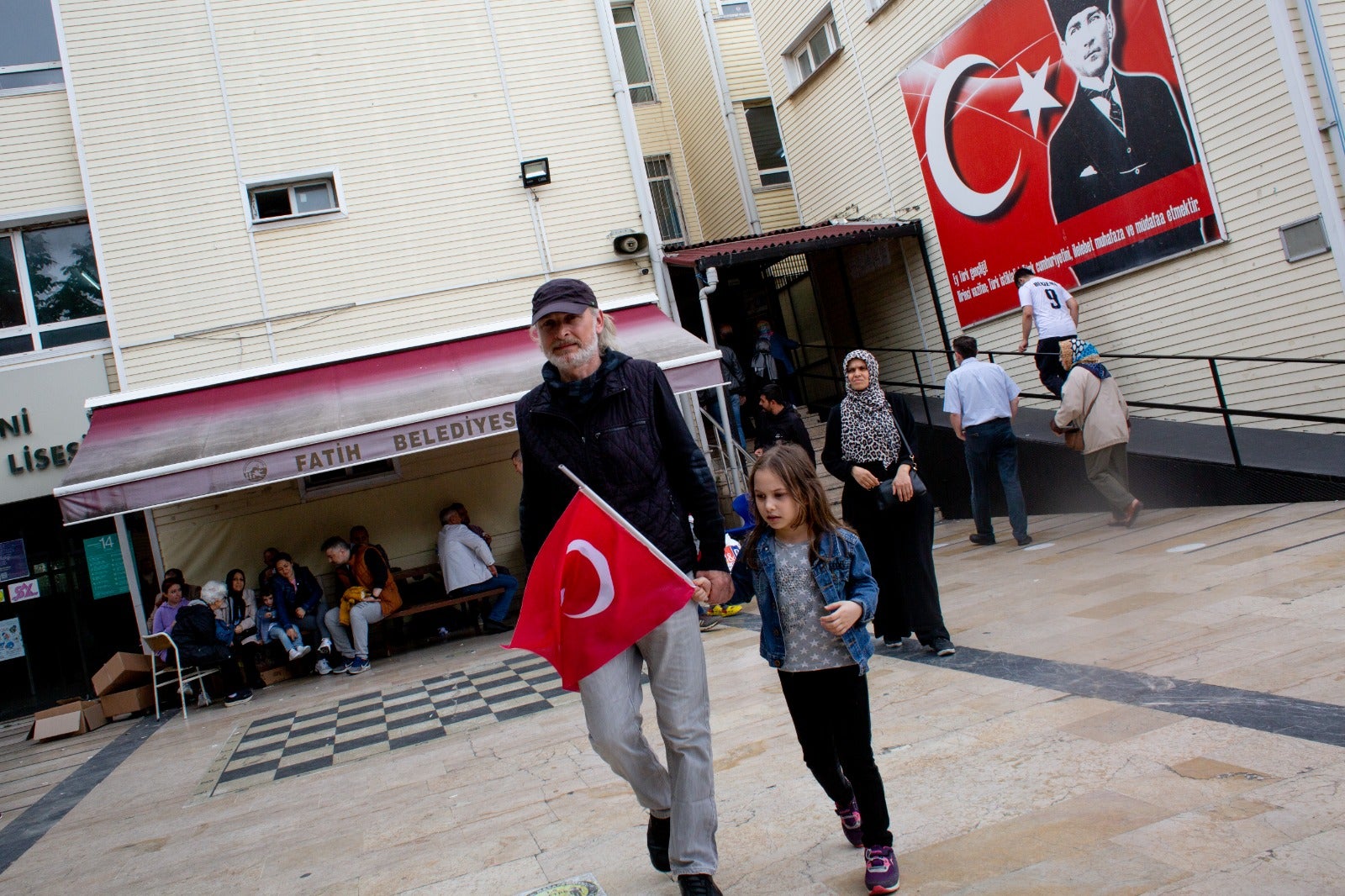
Turkey’s Recep Tayyip Erdogan has been declared the winner in the country’s unprecedented presidential run-off – extending his two-decade grip on power for another five years.
The head of Turkey’s Supreme Election Council (YSK), which tracks the official results, said that Mr Erdogan was elected as the new president with 52.14 per cent of the votes, compared to 47.86 per cent for his challenger, Kemal Kilicdaroglu. With more than 99 per cent of the ballots counted, the YSK chairperson, Ahmet Yener, said Mr Erdogan’s lead of 2 million votes could not be caught.
Speaking to an estimated 320,000 people outside his palace in Ankara on Saturday night, Mr Erdogan said: “You gave this duty to us again, we will build the century of Turkey together. In one of the most important elections in Turkish history, our nation chose the century of Turkey. They already chose our party as the majority party in the parliament. It is not just us who won, Turkey won.”
Mr Erdogan promised to help Syrian refugees return to their country, with the announcement of a deal to build homes in a deal with Qatar. He also said that inflation was the most urgent issue for the country, but said it would also fall, following the policy rate that was cut to 8.5 per cent from 19 per cent two years ago. “We are designing an economy focused on investment and employment, with a finance management team that has international reputation.”
Earlier, speaking to supporters on a campaign bus outside his home in Istanbul, Mr Erdogan said: “I thank each member of our nation for entrusting me with the responsibility to govern this country once again for the upcoming five years,” he added, while ridiculing Mr Kilicdaroglu for his loss by saying “bye bye bye, Kemal” as supporters booed. It was a stretch to expect magnanimity from a man who has spent so many years consolidating power and crafting the nation in his image – taking the country down the path of authoritarianism in the process. Perhaps more ominously, he told the crowd: “We will be together until the grave.”

Mr Erdogan campaigned frenetically in the weeks since he exceeded polling forecasts but fell shy of an outright majority in the 14 May first round of the elections, forcing Turkey into a run-off for the first time in its history. He has been trying to secure his legacy as his nation’s most consequential leader since its founder, Mustafa Kemal Ataturk.
He faced off against Mr Kilicdaroglu, leader of the centre-left People’s Republican Party (CHP) and architect of a six-party opposition coalition that has posed the greatest political challenge to Mr Erdogan in years. That was thanks to a focus on a cost of living crisis driven by rampant inflation.
The election, on the centennial of Turkey’s founding as a modern republic, carried enormous weight for the country, seen as something of a defining moment in its political and cultural identity. Mr Erdogan represents an Islamist-tinged nationalism, with appeals to Turkey’s Ottoman imperial past, while Mr Kilicdaroglu and his party had sought to define themselves as closer to Turkey’s Western allies, steeped in an ideology and lineage rooted in Ataturk’s version of secularism. In his speech to supporters, Mr Erdogan promised to work hard for Turkey’s second century.
As for Mr Kilicdaroglu, he called the election “the most unjust ever”, with all state resources mobilised for Mr Erdogan. There were multiple reports of irregularities, including in an incident in the heavily contested southeastern province of Sanliurfa where opposition lawyers seeking to look into allegations of ballot stuffing were barred from a polling station.

Mr Erdogan and his allies hold sway over much of the broadcast media and had flooded the airwaves with his speeches in recent days while giving Mr Kilicdaroglu scant airtime. However, Mr Kilicdaroglu said that the fight for the country’s future was not over. “We will continue to be at the forefront of this struggle until real democracy comes to our country,” he said in Ankara. He thanked the more than 25 million people who voted for him and asked them to “remain upright”.
He said he was sad about the “troubles” that awaited Turkey with Mr Erdogan still at the helm, but that the people had shown their will “to change an authoritarian government despite all the pressures”.
“I did everything I could to make sure you could live in a fair nation and I will continue to lead that fight,” he added.
The style of Mr Erdogan’s leadership was perhaps best summed up by the line of strongman leaders who sought to congratulate him on his win, even before the official result was announced. That included Russian president Vladimir Putin, who congratulated his “dear friend” on his victory and Hungary’s Viktor Orban.
The election outcome will impact the dynamics of Nato, of which Turkey is a longtime member, and could affect the outcome of the war between Russia and Ukraine – where Turkey has mediated a grain deal that has helped to keep Ukrainian grain exports flowing. Turkey’s geographical position also means it has political clout when it comes to the Middle East and North Africa.
So it was also not a surprise to see France’s president Emmanual Macron, EU Council president Charles Michel and the head of the European Commission Ursula von der Leyen all pass on their congratulations swiftly after the result was confirmed. There were also numerous messages to Mr Erdogan from the Middle East and the Gulf and even one from the Turkish president’s former geopolitical rival, Egyptian president Abdel Fatah al-Sisi. The prime minister, Rishi Sunak, soon followed suit, as did the US president, Joe Biden.
Lines at polling stations were shorter and more relaxed than the first round of the elections, in large part because voters face a simpler single ballot with two candidates, rather than the complicated parliamentary choices of two weeks ago.
Mr Erdogan won over voters despite lingering worries over the economy – which has been on a downward spiral over the last few years.
“I think the country is doing well,” said Songul Safak, a 36-year-old jeweller who voted for Mr Erdogan. “The economy is doing badly because of the actions of other countries.”
In one video clip that went viral, a voter brought her pet lamb to the polls, the fluffy white creature in a striped sweater trundling behind her as she obtained and cast her ballot. Others brought their dogs and pet parrots.

Turnout was around 84 per cent of 64 million registered voters, including nearly 2 million aboard. That was slightly less than the first round, with the Kilcdaroglu-led opposition appearing in particular to see falls in turnout in some areas it would expect to be strong.
Crucial issues on voters’ minds included the status of migrants and refugees, national security matters and Turkey’s place in the world. But the country’s spiralling economy remained the top issue on everyone’s tongue and the one most impacting daily lives. The country’s inflation rate is among the highest in the world, and wages have failed to keep up with housing and food costs.
“If it goes on like this Turkey will be Argentina in a few months,” Nevsin Mengu, an independent political analyst and broadcaster, said in an interview, referring to the Latin American country which has been for decades an international poster child for economic mismanagement.
Mr Erdogan dug deep into the country’s reserves to prop up the Turkish lira, and there was also support from the Gulf. “Some countries from the Gulf and such stocked money in our system,” the president conceded in an interview with CNNTurk on Friday. “This relieved our central bank and market, even if for a short while.”
Despite his handling of the economy, Mr Erdogan’s path to victory was far easier than his challenger, Mr Kilicdaroglu, who had claimed 45 per cent of the vote in the first round despite pre-election opinion polls giving him a lead. The opposition’s poor performance had demoralised its supporters.
“I think the elections are not fair at all, and I think Erdogan will ultimately win,” said Zeynel Circir, a 53-year-old electrical engineer voting in Istanbul earlier in the day.
The first-round performance prompted Mr Kilicdaroglu to shift the tone and emphasis of his campaign from a message of hope and inclusiveness to focus almost exclusively on returning the several million Syrian refugees, who had fled war, back to their home country. The gap between the opposition candidate and Mr Erdogan, who had won more than 49 per cent of the vote two weeks ago had forced Mr Kilicdaroglu to chase after nationalist votes.
Mr Erdogan’s victory will spur soul-searching and perhaps major changes within the opposition. “The ballot box result is full of messages that need to be examined and lessons that need to be learned,” Istanbul mayor Ekrem Imamoglu, a leading opposition figure, said after casting his ballot.
Yusuf Sayman contributed to this report







